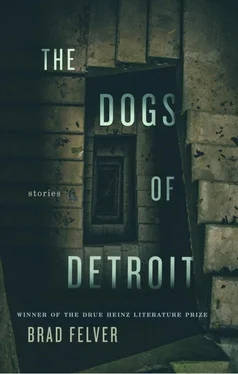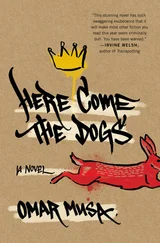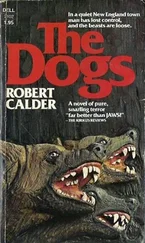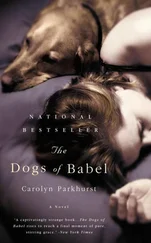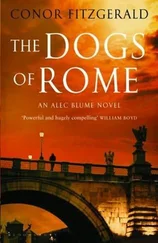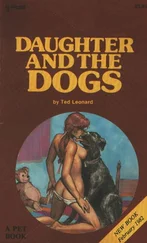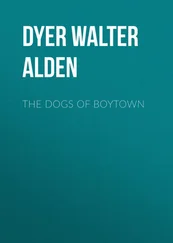Cut Bank was a raw world, a place that progress had ignored, and we were fine with it. Everyone was a bit crude, like we had first wandered out of the wilderness only weeks earlier—the men always unshaven and frowning, the women with tangled, knotty hair. A place like Missoula might have been New York City to us. Only our proximity to the national park forty miles west was proof to the tourists that we could behave like civilized folk.
Charley wandered the hills and the streets of Cut Bank with what had been his father’s Winchester .444 and had no fear of grizzlies or tourists or anyone except my father. Even when he stayed with us in civilization, he liked to invent violent games with strict parameters that tested your manliness. “New game,” he would always say, and then we would practice it, fine-tuning the rules to eliminate the nudge—the pussy, the chicken liver, the weakling—which was the worst thing a human could be.
Years earlier, my mother and Charley’s father died in a car accident that left many questions unanswered. (His trousers had been at his knees, and she hadn’t been wearing her seatbelt.) We became a sort of leftover family. Charley and his mother moved into our squat concrete house, which had only two bedrooms. My father never claimed it was something other than the obvious. They shared a room and a bed, and Charley and I did the same, and I suppose this was some kind of misguided justice. Starla, Charley’s mother, was a thin, doe-eyed woman who smoked more than she ate and managed to over-boil a hot dog. When she did speak, it was so quiet that you learned to just nod at things you couldn’t quite hear.
Charley ignored her so casually it seemed Starla could have been his pestering younger sister. She asked little of him—to go to school at least twice a week, not to leave his loaded rifle on the counter, not to talk about her dead husband at dinner—but Charley couldn’t do it. He chose not to. But when he disobeyed long enough or called her something too ugly, my father would step in, telling Charley to apologize or get thumped, and Charley always sneered his sorries and wandered off somewhere. My father took Charley on as an accessory to having Starla move in. Charley dealt with my father because he couldn’t sleep outside during a Cut Bank winter.
“The first one to complain about your mother’s cooking,” my father said early on, “becomes the new chef.” He pointed to Starla when he said “mother” but spoke to us both. “I don’t enjoy thumping you boys, but you know I will,” he added. Starla looked at the ground as if embarrassed that someone would take so much time to defend her. So we never complained.
“New game,” Charley said when we avoided the house. Then we stole bikes from outside the convenience store, tucked push-brooms under our arms, and jousted each other down the middle of the street. First one to get knocked off had to eat a pinecone. First one to complain about soreness in the ribs lost use of his chariot for the next round and had to run down the spray-painted joust lane. First one to bleed was a nudge.
When we tired of bike jousting, we took up cat hunting. I used a pry bar; Charley used a hatchet. Whoever brought home the most cat tails won. No time limit. If you tried to pass off roadkill and got caught, you had to eat it. If you came home empty-handed, you were a nudge.
The first time we played, I killed three—all mangy, hopeless-looking things—and came home at dark. Charley stayed out all night. He shook me awake before sunrise with eleven cat tails dangling from his belt loops.
When my father found the cat tails under our bed, he thumped us. At first, Charley stood with him, tried to make an honest showing of it, but my father was a large man, a real bruiser, and Charley ended up with a fat, red face. “Wherever the bodies are, boys,” my father said, “go find them. You kill it, you eat it.” So, we trudged back out, both on the same team, to find our cats. We skinned and gutted them, then tossed their bones and guts into a shallow pit in the cemetery. We roasted the rest until they tasted like charcoal, both to burn the rot out of them and because neither of us wanted to know what cat tasted like. Charley cursed my father under his breath, but he also ate his share.
We hid our cat tails better after that.
At night, when we couldn’t compete, we closed our bedroom door and pretended, smoked Winstons and set up hypothetical scenarios to root out the nudge. That we had to disagree for the game to work was understood.
You’re in a cage with another man. Do you want a .22 with only one round or dull pirate sword?
You’re interrogating a terrorist. Do you want a scalpel or a jar full of lava?
The neighbor’s dog keeps barking all night. Do you kill the dog or the neighbor?
What wild animal would Starla be? On this alone we agreed: pigeon.
Then my father brought home a set of boxing gloves and taught us to throw the leather. He could only afford one set, so one hand threw the leather and the other hand threw the flesh, which hurt a lot more. At first we just attacked each other like wild dogs, but we soon learned that you couldn’t keep up that sort of pace for more than a minute or so. Those fights ended early, before there was a clear winner and a clear nudge, and so we had to learn a more measured approach.
It was humiliating at first. Nothing natural about throwing a punch. Range of motion is too loose, too many options that beg to be combined and leave you wide open. You have to commit to one, be precise. Speed and precision over power, always.
The second week Charley caught me high on the neck, right on my Adam’s apple. “Christ, Jack,” he said when I sat on the ground sucking air in between rounds, “your neck’s the size of a watermelon.”
I hadn’t felt anything before that. There’s no pain during a fight. That usually surfaces in the morning. Charley ran inside and took Starla’s makeup mirror and showed me. It was already red and bulging, and when I opened my mouth to talk, the Adam’s apple bobbed around as if loose from its hinges.
When I told my father I couldn’t eat dinner that night, he thought I was getting smart with him. “We had the talk about your mother’s food,” he said. “Sit.”
But then he saw my neck, laughed and told me to sit still, someone had plucked my apple and that it wasn’t all that uncommon for fighters. He looked over at Charley, smirked.
He felt around the swelling, and I gripped the table ledge until the blood drained from my hands, and then all of a sudden he jostled it in a quick movement, and I felt a click like a kneecap sliding back into place. “There,” my father said and turned back to his chicken.
In a couple days, the swelling eased, and we went back to tossing punches as hard as we could and gassing before we bloodied each other. My father stood watching us, shaking his head. The injury had piqued his interest. We knew he’d boxed in the marines, and that earned him some respect. “Keep your chin down and elbows tight,” he said and demonstrated. “Pivot at the hips. Bend your lead knee. Twist into him to dodge. Don’t lean back or you’re wide open, and if the other guy knows what’s what, he’ll pancake you.”
Our hands turned rough, leathery, and our exposed knuckles bulged like old tree roots and dislocated often enough that it stopped hurting. We snapped jabs and didn’t pull punches, not ever. Charley’s nose pudged flat from my straight right, but he didn’t mind once my father told him he looked like Primo Carnera. After this, he led more with his face, daring me to pancake him, which I did.
I was better, but Charley was tougher. I was a full head taller and still growing. But Charley was short and skinny and hadn’t grown an inch since he was fourteen and never would. Still, even his measured attacks were ferocious. His eyes yellowed as if infected with some jungle disease. The primal nature of it all seemed to satisfy something in him—a stripped-down exercise that determined who would survive.
Читать дальше
